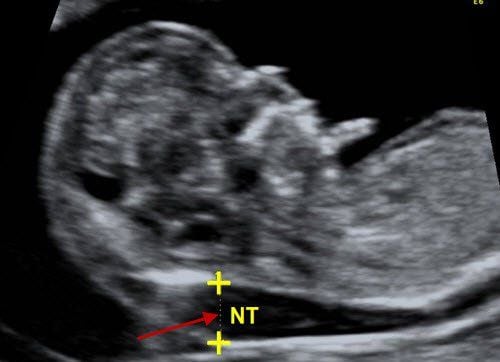Fetal hypoxia can lead to conditions such as low birth weight, premature birth, malnutrition…, or, more seriously, developmental delay, depending on the severity of oxygen deficiency. After birth, brain hypoxia in newborns can cause high rates of disability and death, with over 25% of babies having brain damage and an increased risk of death at 18 months.
1. Causes of fetal hypoxia
Maternal causes
The amount of oxygen that the fetus receives is largely transferred from the mother's body. Therefore, if the mother's blood oxygen is insufficient, it will cause the fetus to be hypoxic. Pregnant mothers with one of the following diseases will be more likely to experience hypoxia:
- Hypertension during pregnancy, chronic nephritis will cause the small arteries to have insufficient oxygen
- Mothers with heart disease, lung disease or anemia during pregnancy also cause red blood cells to not have enough oxygen
- Pregnant women with asthma are more likely to experience fetal hypoxia
- Carbon monoxide poisoning, acute infection... also cause the baby in the womb to lack oxygen
Fetal causes
- If the placenta is too short, knotted, or has placental dysfunction, it will also cause fetal hypoxia
- In addition, fetuses with congenital heart disease, internal bleeding, fetal malformations can also experience this condition
- In addition to the above causes, the fetus holding the umbilical cord too tightly or the mother being in a hypoxic environment during pregnancy can also cause fetal hypoxia

2. How dangerous is fetal hypoxia?
Fetal hypoxia can lead to conditions such as low birth weight, premature birth, malnutrition, or, more seriously, developmental delay, depending on the severity of oxygen deficiency.
After birth, brain hypoxia in newborns can cause high rates of disability and death, with over 25% of babies having brain damage such as cerebral palsy, blindness, developmental delay, and an increased risk of death at 18 months.
3. What to do when a fetus is lacking oxygen?
When fetal hypoxia is detected, mothers should look for examination and oxygen supplementation for the baby using specialized machines. This is an effective way to improve the mother's condition and increase the oxygen concentration in the blood to be transmitted to the fetus.
In addition, to prevent the risk of fetal hypoxia, pregnant women need to maintain a left lateral position. This is an effective way to increase blood supply to the fetus in the uterus, reducing the risk of the baby being hypoxic.

Brain hypoxia in newborns needs to be treated with airway and respiratory support; assess active cooling and initiate passive cooling; monitor respiratory rate, SpO2, temperature, and blood pressure,...
Parents should take their children to the doctor as soon as they notice signs of brain hypoxia. Vinmec International General Hospital has a team of well-trained pediatric specialists with extensive experience who will examine, diagnose, and provide appropriate treatment for infants with brain hypoxia.
To arrange an appointment, please call HOTLINE or make your reservation directly HERE. You may also download the MyVinmec app to schedule appointments faster and manage your reservations more conveniently.








